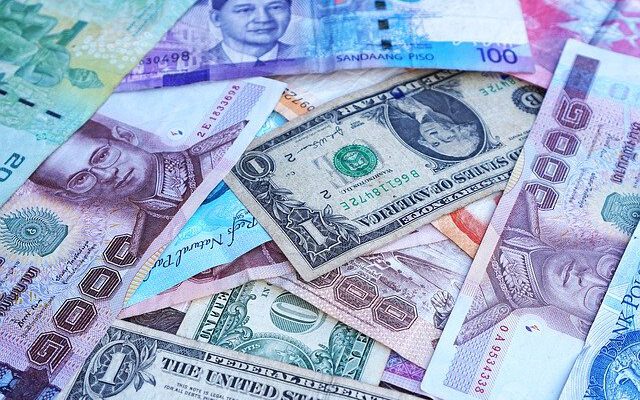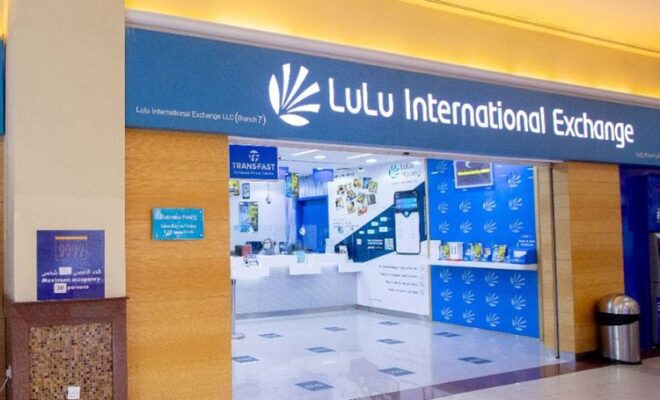Banks in Kuwait considering acquiring Money Exchange companies

There are 40 Exchange Companies under the supervision of the Central Bank of Kuwait.
KUWAIT CITY: It is customary to find branches of money exchange companies at the airport in Kuwait or anywhere else in various parts of Kuwait where money can be transferred or exchanged for different currencies. However, for local banks to provide this service through exchange companies owned by them, the rules of the game between banks and exchange companies changes, reports Al-Rai daily.
In this regard, banking sources explained that there was a recent banking discussion about the possibility of a bank acquiring exchange companies. Some banks had already flirted with “exchange” entities, and they had given some indications reflecting their interest in investing in this sector.
There are more than 400 exchange offices in Kuwait, most of which operate on a single branch system and are subject to supervision of the Ministry of Commerce and Industry. There are 40 exchange companies under the supervision of the Central Bank of Kuwait, for which each company requires a capital of KD 2 million.
If the banks that are interested in buying reach an agreement with the owners of exchange companies who decide to sell, the discussion will move to the second stage which is a due diligence examination. Open negotiations in this regard are still preliminary, and no party has agreed with any action that reflects a specific decision to date.
It is not clear yet the form of banking interest in the money exchange sector definitively, as all investment options are open in this regard. Interested banks may resort to fully or partially acquiring exchange companies, or even opening new exchange branches that compete with the existing entities.
Perhaps what facilitates the digestion of the idea of banks’ investment in the money exchange sector is their competition outside their original services sector in terms of offering activities similar to the work of exchange companies, and their enjoyment of the appropriate capabilities for that. They can also achieve distinction or improve services especially regarding transfers that are already made through their systems or for converting one currency to another.
Banking move
Informed sources explained that this step is a new banking move to adopt a strategy aimed at ensuring their presence in the money exchange sector. However, this time it is not out of traditional cooperation by allocating accounts to exchange companies to be used in cash deposits and withdrawals, but rather through the implementation of direct investment in this sector, while obtaining special licenses for banks to conduct this business.
There is a main reason that motivates banks to invest directly in the money exchange sector besides the success of the experience in many markets, including Saudi Arabia and Egypt. There is a banking conviction that banks are not benefiting from the implementation of money exchange companies’ transfers through them both in terms of the useless return and the massive operational need they undertake to carry out these conversions.
This situation has prompted some banks in the recent period to reduce their dealings with exchange companies and close some of their accounts, although it was agreed in a previous period to specify a major bank for each exchange company that deals with cash deposits and withdrawals, especially after the growing complaints of banks about the possibility of being exposed to money laundering operations due to the unspecified dealings with exchange companies under a master account.
Financial intermediation
The sources went on to explain that banks had previously expanded in related sectors, through the establishment of investment companies. Some of them recorded some successes, and served as an added value to the activities of the main bank but some others did not achieve their target for various reasons.
It is known that some banks expanded towards the financial intermediation sector. There are currently three banks in financial intermediation companies. The expansion towards the money exchange sector is part of a broader idea that banks work on to form a service system that consolidates their presence with their customers in all sectors of their services.
Moreover, the local market is characterized by being promising in terms of remittances of expatriates, which amounted to about KD 4.4 billion in 2019, and part of the Kuwaitis’ travel expenditures, which amounted to about KD 3.7 billion in 2019, was through remittances, taking into account that a large segment of citizens, companies and business owners, especially young people, prefer to transfer via exchange companies.
The presence of exchange companies affiliated with banks is considered a good step that contributes directly to creating more channels of official rates for customers, as well as supporting the stability of exchange rates in the market and the elimination of the so-called “black market”, especially in light of the reform steps adopted by the government and the Central Bank of Kuwait in the current period.














